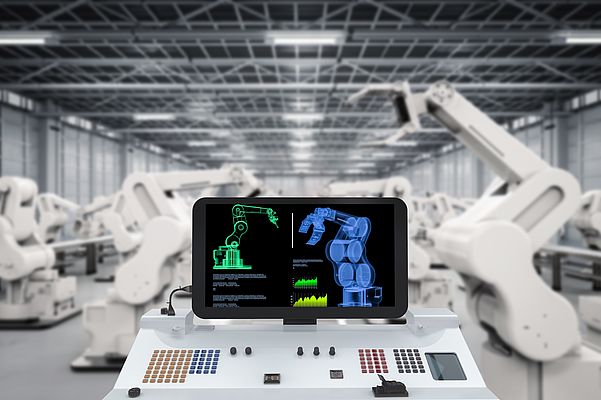Companies that fail to realise the benefits of digital transformation are likely to fall dramatically behind their competitors. Understanding the cost of not transforming to Industry 4.0 is the topic of the latest research from Siemens Financial Services (SFS), which estimates the size of the investment challenge and looks at the potential organisational and financial gains - from migrating to smart factory technology - that late adopters of this new technology will miss out on. Seizing digital transformation can constitute the difference between falling behind, or surviving and thriving, even more so in the light of recent economic uncertainty.
The report “Industry 4.0: Rising to the challenge” – the first of a series – conservatively estimates the global transformation challenge for smart factory migration to be in excess of $400 billion over the next five years. This is after predictions have been reduced to just half of the ‘available market’, thereby offering a highly conservative view of the magnitude of the financial investment required even to reach 50% market penetration. Europe alone accounts for $137.4 bn of this total – a considerable capital requirement.
While the productivity benefits of digitalisation are potentially accessible to all manufacturers, the window of opportunity to transform and thereby gain competitive advantage is limited, making the issue an urgent one. Currently just 10% of global manufacturers can be classified as ‘digital champions’, with almost two-thirds in the early stages of their digital journey. If manufacturers continue on this current trajectory, they are unlikely to withstand the competitive realities of manufacturing both now and in the future. Previous research from SFS has shown that the window of opportunity to get ahead of the competition has a ‘tipping point’ of between 5 and 7 years. Once the point of majority adoption is reached – meaning that 50% of manufacturers have made substantial investments in Industry 4.0 - manufacturers that have not yet implemented digital transformation will be playing catch-up.
Finance 4.0
Challenges to implementing digital transformation tend to pivot around the issue of finance – particularly during this time of economic turbulence. These barriers, however, can be overcome using smart finance techniques - known as “Finance 4.0” - which cover the full range of requirements, from the acquisition of a single digitalised piece of equipment, to financing a whole new factory. Smart financing techniques help manufacturers to address the need to invest, to harness sustainable third-party capital to reduce the burden on corporate lines of credit, as well as to deploy cash flow management techniques that help maximise available working capital. All of these are playing a crucial role in helping manufacturers deal with the current period of volatile markets and economics.
Smart finance solutions tend to be offered by specialist financiers, where the funder understands the technology, the markets, the applications and the operating pressures and where financing is an integrated part of the discussions with technology vendors. Currently, one of the greatest advantages of such an approach is the ability to flex and adapt rapidly to market challenges. More broadly, these financing techniques align payments to the expected rate of return-on-investment delivered through new technologies and equipment.
So, what can be gained from embracing digital transformation – over and above technological transformation and its productivity gains – and how are these being enabled through smart finance? Increased production capacity, agility and productivity, while improving price competitiveness are just some of the examples. Equally with digitalisation, manufacturers may experience tightened liquidity due to rapid growth. Asset based lending allows a borrower to access the cash that may be tied up in working capital assets.
Total financial package
Looking further ahead, with technology innovation and upgrade periods shortening, smart financing techniques offered by specialist funders can protect manufacturers from the risk of technology obsolescence by incorporating upgrades into a total financing package. This allows the life of the technology platform to be extended as well as the value and capabilities it delivers to the manufacturer. A growing number of Industry 4.0 solution providers are therefore integrating smart finance into their overall value proposition for the manufacturing sector. This adds value to the overall proposition while also making access to them financially sustainable and aligned to the business benefits they deliver.
There is a consensus among global analysts that it is critical to maintain new technology adoption even in times of economic difficulty. Migrating to smart factory technologies can put manufacturers in a better place to achieve their desired business outcomes – through increased agility, productivity, reduced energy consumption or even lower inventory holding costs. As the pace of digital transformation gains momentum and the window of opportunity for competitive advantage from investment continues to shrink, manufacturers are increasingly making use of integrated finance options to facilitate their industry 4.0 adoption and accelerate their journey towards digitalisation.
By Brian Foster, Head of Industry Finance at Siemens Financial Services UK

















